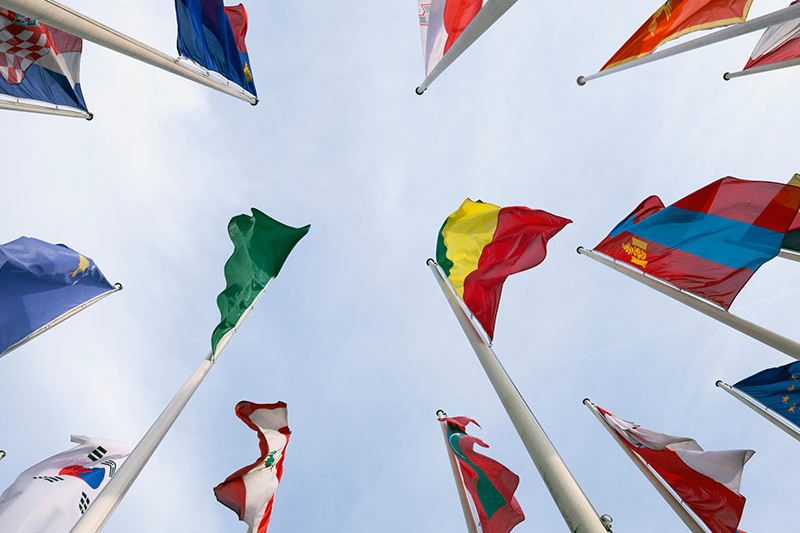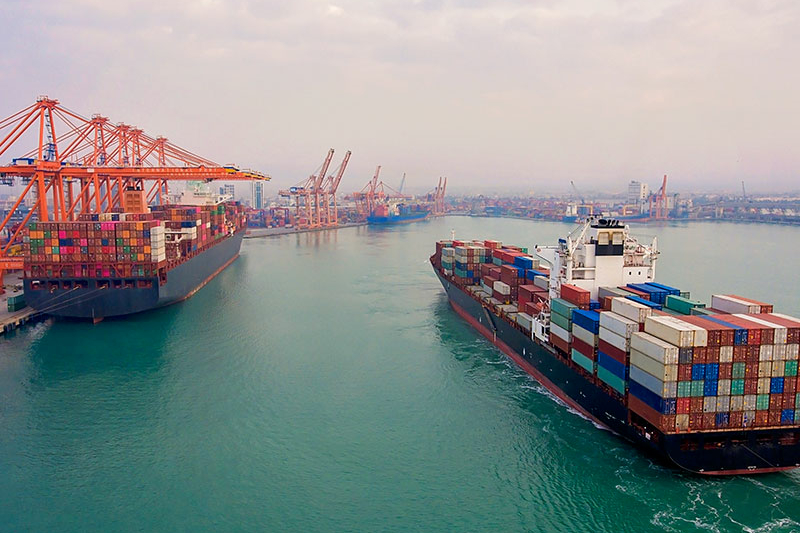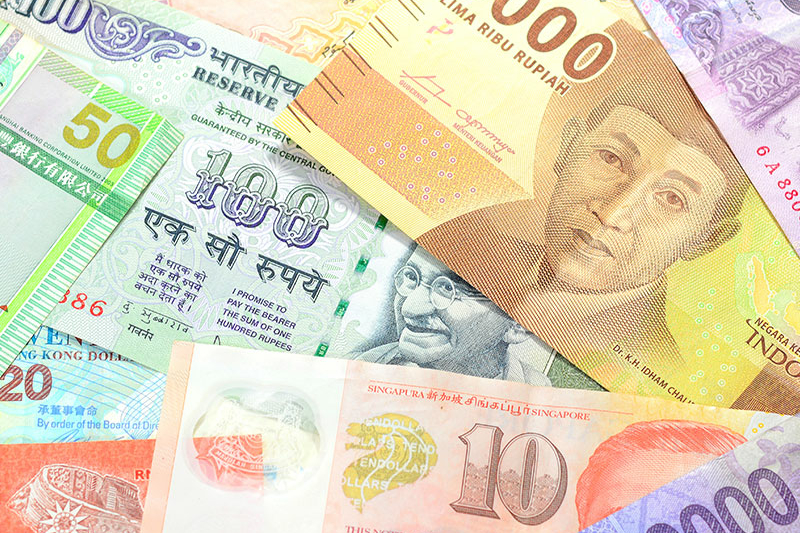Europe takes a tougher approach to technology mergers
Taiwanese companies should keep Europe in mind when planning new deals

While we may be weathering the COVID-19 pandemic, the geopolitical fractures and economic decoupling that reshaped the global business landscape in 2020 have continued to accelerate throughout 2021. It might be too early to say the global markets are "back to business," but there are strong signs that we are on the right track to return to normalcy.
In the Americas, the transactional markets are booming, particularly for M&A and capital markets transactions. The expected passing of a new significant infrastructure bill by the US Biden Administration is expected to create significant infrastructure spending and investment opportunities in the years ahead. Within Europe, the Middle East and Africa (EMEA), we see the rapid emergence of environmental, social and governance (ESG) thematic investments, as well as a renewed focus on technology and healthcare transactions. Private equity (PE) and venture capital (VC) investments into Africa, often viewed as the next growth frontier, have also increased. In Asia-Pacific, Sino-US decoupling and the emergence of special purpose acquisition companies (SPACs) have given rise to significant changes in traditional fundraising avenues and exits.
Moreover, these trends are taking place amid the continuing uncertainties of the world’s varying responses to the COVID-19 pandemic and complex, new global regulatory developments involving trade, sanctions and other geopolitical business issues. For companies and investors based in Taiwan, it can be a challenge to navigate these global risks while seeking out the many growth opportunities that still exist.
We hope this year's report for Taiwanese businesses and investors provides helpful guidance amid a time of historic global transitions.
We begin by reviewing European competition authorities’ heightened focus on the technology sector and tough approach to technology mergers. Similarly, Taiwanese companies doing business in the US may feel the impact as US antitrust policy increasingly targets the technology industry.
Taiwanese businesses and investors should prepare for foreign direct investment (FDI) regulatory scrutiny early in their deal processes, particularly in cross-border M&A transactions involving Europe, the US and other countries, as well as investments into "sensitive" sectors that increasingly include technology, healthcare and other data-driven industries.
Due to the ongoing regulatory changes, global and regional businesses involved in US-Sino trade should balance the competing restrictions while maintaining a cautious approach.
Taiwanese companies exposed to the US market need to understand the rise in US disputes over standard essential patents (SEPs) and how US juries will likely resolve related damages.
We will also discuss how the SPAC and de-SPAC process can help high-potential target companies gain liquidity and the particular opportunities this presents for Taiwanese companies.
Finally, our update on Asia-Pacific financing trends presents insights into areas of financing optimism and robust deal activity throughout the capital markets.
We look forward to discussing these and other issues with you.
Taiwanese companies should keep Europe in mind when planning new deals

By Eileen Cole and Anna Kertesz
Taiwanese companies could feel the impact of the current push for wide-scale change

By Tilman Kuhn and Karalyn Mildorf
Expanded reviews and more resources: The view from 2021

By Cristina Brayton-Lewis and Bingna Guo
Navigating complexities under a new US administration

Taiwanese businesses should watch for continued assertions on 5G, IoT

By Steven Sha and Daniel Yeh
Current market options for Taiwanese companies seeking liquidity

By Charles McConnell and Manley Leung
What's next for Taiwanese banks and businesses?


Taiwanese companies should keep Europe in mind when planning new deals
For many years, the European Commission (the Commission) has been the most active enforcer when applying antitrust law to the technology sector. In past years, we saw a number of important decisions based on Article 102: decisions that are now subject to appeal, with the first judgments anticipated this autumn. In 2020 and 2021, new investigations were opened, but they have not yet reached the stage of a decision.
The technology sector remains a primary focus of the Commission.
This year, the most interesting developments relate to technology deal-making. The Commission has changed its practice so that acquisitions of technology startups can be notifiable at the European Union (EU) level, based on a new interpretation of Article 22 of the EU Merger Regulation. The Commission has also proposed that there should be a second merger filing at the EU level if the acquirer has received subsidies from a non-EU government.
These new rules have the ability to affect Taiwanese companies or their rival bidders for a particular technology deal, and they will be important to future technology deal-making.
In March 2021, the Commission published new guidance on the application of the referral mechanism set out in Article 22 of the EU Merger Regulation.
The current thresholds to trigger a merger filing at the EU level are based on the turnover of the acquirer and the target company. However, the Commission considers that in recent years there have been increasing numbers of acquisitions of businesses that play or may develop into playing a significant competitive market role, despite generating little or no turnover at the moment of the deal.
The Commission believes these transactions, notably in the digital sector, may significantly affect competition and often escaped merger control, because of a target's low turnover. The new guidance aims at addressing this perceived enforcement gap with respect to so-called "killer acquisitions" falling below all merger thresholds in the EU.
The Commission has therefore announced a change to its practice (which took effect immediately) that enables it to review such mergers.
Its guidance encourages EU Member States to refer mergers based on Article 22 for EU-level review that do not meet their national merger thresholds and that:
Article 22 was originally conceived in the 1990s as a means for Member States that did not have merger control rules to refer the matter to the Commission. Since all Member States today have merger control, it was a provision that has recently been rarely used.
The use of Article 22 systematically to target transactions that do not meet any filing thresholds–neither at the EU level, nor in any EU Member State–in practice introduces a new mechanism (without changing the Merger Regulation) to ex officio investigations at the EU level of all mergers that might lead to competition concerns.
The Commission has already involved this new power to challenge one technology deal and one biotechnology deal.
The Commission has given guidance on when it might welcome a referral. It will consider whether the target:
Beyond that, the key factor that the Commission will take into account is the value of the deal. In other words, it will review how much is being paid to acquire the target company with low or zero turnover and the ratio between the price and the target's current turnover.
This new mechanism will have an impact on deal certainty, as deals now may face a merger control review in the EU even where no filing thresholds are met. It can also affect deal timelines, as merger review at the EU level is burdensome and can take considerable time.
Going forward, the risk of a referral request will need to be carefully considered and addressed in the deal documentation.
In May 2021, the Commission issued a proposal for a far-reaching regulation to tackle foreign subsidies. If adopted, the regulation will increase the regulatory risk for companies operating or investing in the EU with backing from non-EU countries.
Notably, the new instrument would require a merger filing for transactions where one party has obtained foreign subsidies above a certain threshold value. It also includes provisions dealing with subsidized bids under the EU public procurement rules, as well as a general power for the Commission to investigate any other market situations where a foreign subsidy has led to a distortion of the EU internal market. This general investigatory power could in theory be used to investigate deals that fall below the new thresholds.
A merger filing would be needed where the target or one of the parties to the deal generates at least €500 million of turnover in the EU and there has been a foreign financial contribution (i.e., subsidy) exceeding €50 million over the three years prior to the notification.
Enforcement of the regulation would lie exclusively with the Commission.
It is envisaged that the notification would share some common elements with the current merger control filing. But this would be a separate and additional requirement. The Commission has the power to impose fines and periodic penalty payments if parties give inaccurate or misleading information.
A foreign subsidy exists where the public authorities of a non-EU country provide a financial contribution to an undertaking engaging in an economic activity in the EU.
The definition of financial contribution is broad. It includes not only the transfer of funds but also the transfer of zero-interest loans and other below-cost financing, unlimited guarantees, compensation, export financing that is not in line with the OECD Arrangement on officially supported export credits, preferential tax treatment, tax credits or direct grants.
The definition is largely based on the definition of subsidy in the WTO Agreement on Subsidies and Countervailing Measures, which has a broad interpretation. Therefore, the potential exists for all kinds of measures to be caught in this approach.
Once the existence of a foreign subsidy is established, the Commission must determine whether the foreign subsidy distorts the internal market.
There are several indicators for this assessment. These include the amount of the subsidy, the nature of the subsidy, the situation of the undertaking and the markets concerned, the level of economic activity of the undertaking concerned on the internal market, and the purpose and conditions attached to the foreign subsidy, as well as its use on the internal market.
Certain categories of foreign subsidy are considered "most likely" to distort the internal market, and therefore do not require a detailed assessment based on indicators. These include a foreign subsidy granted to an ailing undertaking, an unlimited guarantee for debts or liabilities, a foreign subsidy directly facilitating a transaction, and a foreign subsidy enabling an undertaking to submit an unduly advantageous tender.
The Commission will balance the negative effects of a foreign subsidy in terms of distortion on the internal market with the positive effects in terms of development of the relevant economic activity. The Commission can apply this balancing in order to determine the appropriate redressive measure, which could be blocking a deal entirely or accepting commitments from the parties.
These new measures will add complexity to the regulatory clearance path for merger and acquisition activity involving EU targets. Before closing their transactions, companies may potentially have to file notifications under the new mandatory procedures, "regular" merger control at the EU or national level, and pursuant to national FDI regimes. This will capture more than investors backed by foreign countries. Major EU multinationals may also trigger the thresholds if they have received more than €50 million in foreign subsidies over a three-year period.
While this new procedure applies to all sectors, it is likely that the Commission will keep a close eye on foreign subsidized acquisitions of EU technology companies.
The technology sector continues to be a focus of EU antitrust enforcement efforts. So, especially in light of these new initiatives, Taiwanese companies need to keep Europe in mind when thinking about their antitrust and deal-making plans.
White & Case means the international legal practice comprising White & Case LLP, a New York State registered limited liability partnership, White & Case LLP, a limited liability partnership incorporated under English law and all other affiliated partnerships, companies and entities.
This article is prepared for the general information of interested persons. It is not, and does not attempt to be, comprehensive in nature. Due to the general nature of its content, it should not be regarded as legal advice.
© 2021 White & Case LLP